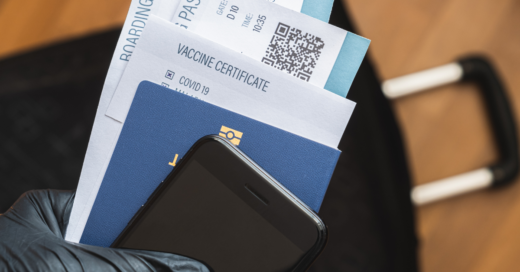
You’ve been cooped up for over a year and ready to explore. Armed with your newly laminated COVID-19 vaccine card, you want to celebrate. But before you start hugging strangers, tossing face masks and throwing caution to the wind, we’re here to remind you of a few safety precautions.
The physicians at Gaston Medical Partners know that everyone wants some normalcy after a challenging 2020. But we have to remember to protect ourselves and those around us who have yet to receive the vaccine. So here are 10 do’s and don’ts to help fully vaccinated people navigate through life during this pandemic.
1. DO Take a Picture of Your Vaccine Card
Once you have received your vaccine card, make sure to store a picture of it on your phone for your records. This document will come in handy in the future for any COVID vaccine-related questions or needs. If you lose your card, contact the place where you originally received the vaccine and inquire about getting a copy.
2. DO Wait Until You are Fully Vaccinated
The CDC considers a person fully vaccinated when they are two weeks past their final vaccination, whether it’s the Johnson & Johnson single dose or the second dose in a two-dose series like the Pfizer or Moderna mRNA vaccines.
3. DON’T Throw Out Those Face Masks
The COVID-19 vaccine does a phenomenal job keeping us from getting the coronavirus, and if we were to contract it, lowers our risk of getting severely sick and dying. What isn’t currently quite as clear is how well the vaccines reduce the spread of COVID-19. That means it’s possible that even those who are vaccinated can be contagious. By continuing to wear your mask and stay physically distant from others, you’ll reduce the chance of potentially spreading infection.
4. DO Take Precautions
The CDC recommends taking precautions while researchers work to understand the true efficacy of these vaccines. Remember to wear a face mask, wait six feet apart and wash hands thoroughly. It’s also a good idea to avoid gathering in large crowds, delay travel if possible and skip places that have poor ventilation.
5. DON’T Worry About Quarantine
Fully vaccinated people don’t have to quarantine after being exposed to COVID-19 unless they start experiencing symptoms. If symptoms appear, they should get tested and stay home and away from others for 10 days after the onset of symptoms.
6. DO Visit with Friends and Family
If people have been fully vaccinated, the CDC says they can safely gather indoors with other fully vaccinated people without wearing a mask. If your circle of friends is sporting their vaccination cards, go ahead and schedule that wine night, but keep your group small.
The CDC also states that you can gather indoors with unvaccinated people from one other household (for example, visiting with family who all live together) without masks, unless any of those people or anyone they live with has an increased risk for severe illness from COVID-19.
This means it is safe to visit grandma and grandpa. Grandparents that are fully vaccinated can safely see their unvaccinated grandchildren without having to wear a mask as long as they keep the interactions to a small group.
7. DO Continue Opting for Outside
Whether you’re grabbing a drink, dining out or attending a live music event, continue to choose outdoor options to keep your activities as safe as possible for everyone involved. Indoor activities still pose inherent risks. Being outdoors, in the open air and socially distanced, is your best chance to prevent the spread of COVID-19.
If everyone in your party is vaccinated, the risk of catching COVID-19 is reduced. But it is important to avoid activities that could make you susceptible to getting the virus and spreading it to others, especially those at higher risk due to health issues or the fact they have not yet been vaccinated themselves.
8. DON’T Ignore New Research About Variants and Boosters
It is expected that any virus will mutate. This is typical virus behavior, so seeing variants of COVID-19 already present isn’t a surprise, and new ones will continue to make themselves known. There is not yet enough information to know how long immunity offered by the current vaccines will protect us. It will take more research to know if we may eventually need boosters.
9. DO Follow Travel Guidance
According to the CDC, fully vaccinated people are permitted to travel,
but they are suggesting that everyone avoid non-essential travel. If people must travel, they should follow local guidance and the CDC’s requirements and recommendations. While traveling, people should avoid crowded places, wear a face mask, wait at least six feet apart and routinely wash their hands or use hand sanitizer that has at least 60 percent alcohol.
10. DO Make Appointments for Ongoing Health Needs
During the pandemic, patients have avoided making appointments for fear of COVID-19. GMP’s offices have been optimized for patient safety, including health screenings, mask policies and keeping COVID-19 testing outside the clinic. Additionally, seeing your primary care provider for your annual wellness exams and continuing with your ongoing medical care are the things that keep you healthy. If you’ve been putting off your next appointment, don’t hesitate to make it today!
Maintaining a relationship with your doctor means you have a trusted resource to turn to when questions arise. Beyond the vaccine in your arm, you can also rely on your trusted physician to arm you with everything you need to stay well in changing times.
